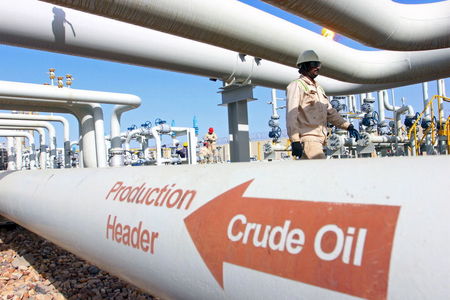
Investing.com– Oil prices fell to a near two-month low in Asian trade on Tuesday as a lack of immediate escalation in tensions between Israel and Hezbollah saw traders price out a risk premium from prices.
Caution before a meeting of the Organization of Petroleum Exporting Countries also weighed on sentiment, although recent weakness in crude is likely to see the cartel downplay any plans for scaling back production cuts.
Anticipation of a slew of key central bank meetings this week kept prices on the backfoot, while persistent concerns over slowing demand, especially in top importer China, continued to chip away at sentiment.
Brent oil futures expiring in September fell 0.2% to $79.63 a barrel, while West Texas Intermediate crude futures fell 0.3% to $75.62 a barrel by 21:27 ET (01:27 GMT).
Supply risks ease as Israel says not seeking war
Traders were seen pricing out a risk premium from crude after media reports said Israeli officials were not seeking all-out war with Lebanon in their retaliation for a rocket strike that killed 12 in Israel-occupied Golan Heights.
Israel is preparing a retaliation for the attack, which was blamed on Lebanese armed group Hezbollah.
Officials said they were preparing for a few days of fighting following the strike, although Prime Minister Benjamin Netanyahu flagged a “harsh” response to the attack.
While the prospect of an all-out war in the Middle East does present some supply risks for crude, there has been so far little disruptions in oil production in the region, even with the Israel-Hamas war reaching its ninth month.
But a ceasefire between the two still appeared distant.
OPEC meeting on tap, supply plans in focus
The Joint Ministerial Monitoring Committee of the OPEC is set to meet on August 1, although reports suggested that the meeting will be routine and yield few changes to production.
But analysts argued that recent weakness in crude prices could push major producers Russia and Saudi Arabia to further downplay plans to increase production later this year, as they had forecast earlier in 2024.
Oil prices were also pressured by strength in the dollar, as the greenback rebounded on Monday in anticipation of a Federal Reserve meeting this week.
The Fed is widely expected to keep rates steady. But any signals on plans for interest rate cuts will be closely watched- caution over which kept markets subdued.
This post is originally published on INVESTING.


